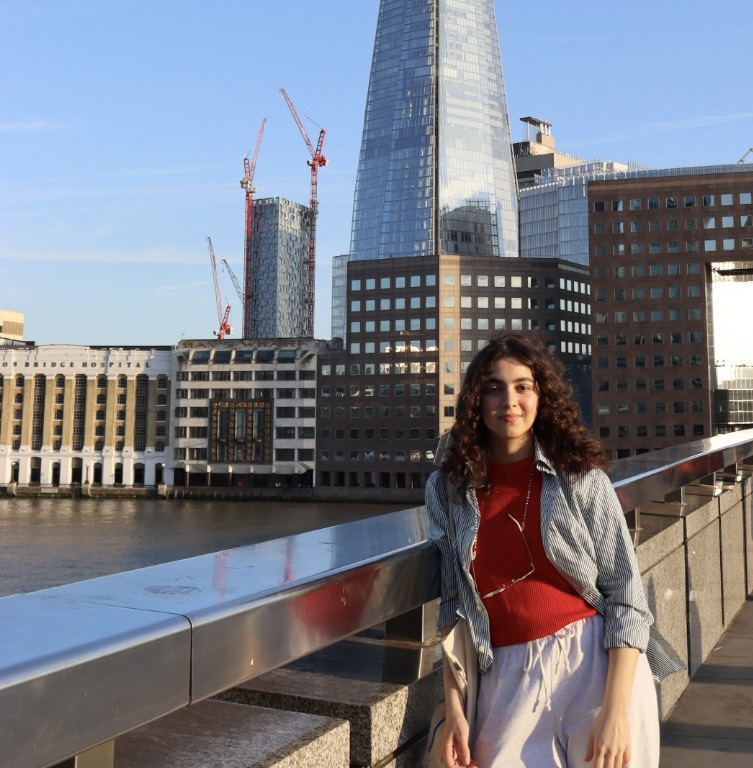What attracted you to that course?
 I was particularly interested in exploring how genetics play a role in both rare and common diseases in humans, as well as the potential for therapeutic interventions.
I was particularly interested in exploring how genetics play a role in both rare and common diseases in humans, as well as the potential for therapeutic interventions.
What specific aspects of the teaching or course format did you enjoy the most?
The mix of teaching methods, including not just lectures but also workshops, study groups, and hands-on lab work, offered an engaging way to deepen my knowledge and develop practical skills. What I enjoyed most about the course format was the 6-month research project. It gave me the opportunity to actively engage in the lab, practice experiments, and learn new skills and techniques. With the guidance of my supervisor, I was able to explore a variety of specialized methods and gain valuable experience working in the research field. I also really appreciated the teaching labs, where we worked in groups and applied what we had learned in a practical setting. Additionally, I found the interactive nature of the lectures/workshops very rewarding—every professor encouraged participation and often turned the sessions into conversations, rather than just delivering material. It was clear they truly cared about teaching and our learning experience.
How do you think the course will impact your future career?
I believe the course has equipped me with a strong set of wet lab techniques, critical thinking and in-depth knowledge of human genetics. These skills will undoubtedly make me more competitive in the field. By exploring different aspects of genetics through the course, I was also able to identify which areas interest me the most, helping me focus on where I want to direct my career. The course has laid a strong foundation for further academic pursuits, and I now feel more confident in taking the next step towards a PhD.
Why did you choose Imperial College London?
I chose Imperial College London because it is one of the top-tier universities globally, ranked 2nd in the world according to the QS Rankings. Imperial has a well-earned reputation for excellence in both teaching and research, offering students outstanding opportunities to learn from leading experts and develop into specialists in their field.
What did you most appreciate about your time at Imperial?
What I most appreciated about my time at Imperial was the opportunity to connect with experts in the field and learn about their career journeys, as well as interact with fellow students who shared my interests. I also had the chance to stay up to date with cutting-edge research, including attending the ESHG conference, where we heard from scientists about their work. It was truly inspiring and motivating, and deepened my passion for the field.
What are you doing now?
I am currently working as a Research Assistant at Imperial College London, continuing my research in the lab where I focused on the repurposing of epidrugs to tackle diabetes during my research project. I thoroughly enjoyed my time in the lab during the last six months of the program, and I’m grateful for the opportunity to continue my work there. This course has been instrumental in helping me reach this point, and I hope this will lead to a PhD in the near future so I can further my research and contribute more to the Diabetes field.